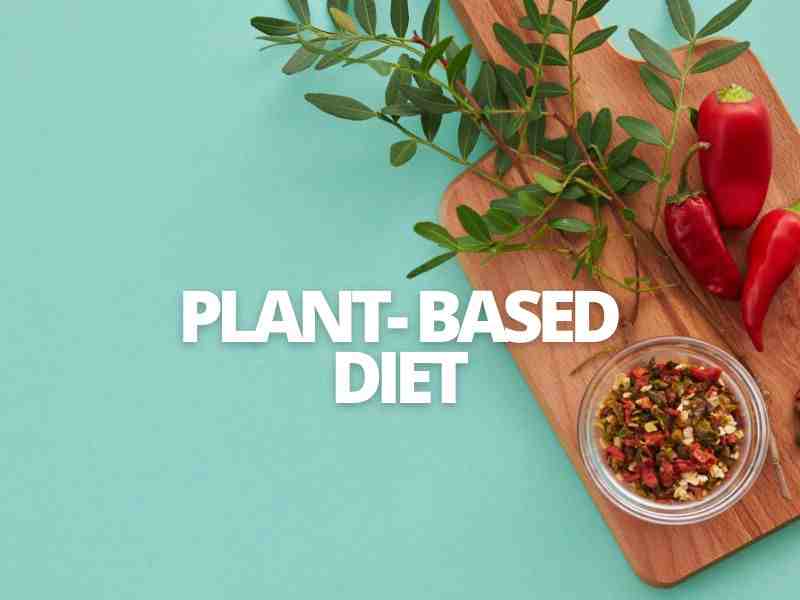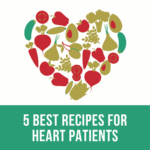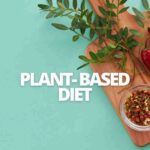The popularity of plant-based diets has been flourishing in recent years and for compelling reasons! A growing number of people are leaving meat-centric meals behind in favour of a world brimming with fruits, vegetables, legumes, whole grains, and nuts. But what’s behind this shift towards plates piled high with plant-based goodness? Let’s dive into the world of plant-based diets, exploring their advantages, challenges, and some handy tips to make a smooth transition.
Benefits of Plant-Based Diets

Improved Health
One of the primary benefits of a plant-based diet is its positive impact on overall health. Plant-based foods are generally rich in fibre, vitamins, minerals, and antioxidants, which can help reduce the risk of chronic diseases such as heart disease, type 2 diabetes, and certain types of cancer. Additionally, plant-based diets have been associated with lower blood pressure, improved cholesterol levels, and a reduced risk of obesity.
Environmental Sustainability
The production of plant-based foods typically has a smaller environmental footprint compared to animal-based foods. Plant-based agriculture requires fewer resources, such as water and land, and generates fewer greenhouse gas emissions. By adopting a plant-based diet, you can contribute to a more sustainable food system and help mitigate the effects of climate change.
Ethical Considerations
For many people, choosing a plant-based diet is an ethical choice. It aligns with their values of reducing animal suffering and promoting compassion towards all living beings. Additionally, some plant-based diets, such as veganism, extend ethical considerations to the avoidance of animal-derived products, including clothing and cosmetics.
Weight Management
Many plant-based foods are lower in calories and saturated fats, making them beneficial for weight management and maintaining a healthy body weight.
Also check: A Gluten-Free Lifestyle
Challenges of Transitioning to a Plant-Based Diet
Nutrient Deficiencies
While plant-based diets can be nutritionally adequate, there is a risk of nutrient deficiencies if the diet is not carefully planned. Some nutrients that may be lacking include vitamin B12, iron, zinc, calcium, and omega-3 fatty acids. It’s essential to educate yourself on plant-based sources of these nutrients or consider taking supplements if necessary.
Social and Familial Pressures
Transitioning to a plant-based diet can be challenging, especially if your family or social circle is not supportive. You may face resistance, criticism, or lack of understanding from those around you. It’s important to communicate your reasons for adopting a plant-based diet and seek support from like-minded individuals or communities.
Dining Out and Traveling
Finding suitable plant-based options when dining out or travelling can be a challenge, especially in areas where plant-based cuisine is not widely available or understood. It may require extra planning and research to ensure you have access to appropriate food options.
Label Confusion
Understanding food labels and ingredient lists to identify plant-based products and avoid hidden animal-derived ingredients can be daunting but becomes easier with experience.
Also check: Unlocking the Power of the Paleo Diet
Tips for a Successful Transition to a Plant-Based Diet
Start Slowly
Transitioning to a plant-based diet can be overwhelming if you try to change everything at once. Start by gradually incorporating more plant-based meals into your diet, and gradually reduce your consumption of animal-based products. This gradual approach can make the transition feel more manageable and sustainable.
Educate Yourself
Learn about the different types of plant-based diets, such as vegetarian, vegan, or flexitarian, and understand the nutritional requirements for each. Research plant-based sources of essential nutrients and plan your meals accordingly. There are many resources available, including books, websites, and online communities, to help you gain knowledge and inspiration.
Experiment with New Recipes
Exploring new plant-based recipes can make your transition more enjoyable and prevent boredom. Try out different cuisines, flavours, and ingredients to discover new favourite dishes. Consider investing in a plant-based cookbook or following plant-based food bloggers for recipe inspiration.
Build a Support System
Surround yourself with a supportive network of family, friends, or like-minded individuals who understand and encourage your plant-based journey. Join online communities or local groups to connect with others who share your lifestyle and exchange tips, recipes, and experiences.
Be Patient and Flexible
Transitioning to a plant-based diet is a journey, and it may take time to adjust to the new way of eating. Be patient with yourself and don’t get discouraged if you encounter setbacks or challenges along the way. Embrace flexibility and focus on progress rather than perfection.
Also check: Label Reading – What Do Those Nutritional Facts Really Mean?
Navigating Nutritional Balance
A common concern when transitioning to a plant-based diet is ensuring proper nutritional balance. Here are some key nutrients to focus on and plant-based sources to include in your diet:
- Protein: Incorporate plant-based protein sources such as beans, lentils, chickpeas, tofu, tempeh, edamame, quinoa, nuts, and seeds into your meals. Combining complementary protein sources like beans and rice or lentils and whole grains ensures adequate protein intake.
- Iron: Opt for iron-rich plant foods like spinach, kale, broccoli, lentils, chickpeas, tofu, pumpkin seeds, and fortified cereals. Consuming vitamin C-rich foods like citrus fruits, bell peppers, and tomatoes alongside iron-rich foods enhances iron absorption.
- Calcium: Include calcium-fortified plant milks (such as almond, soy, or oat milk), tofu made with calcium sulfate, leafy greens (such as kale, collard greens, and bok choy), almonds, sesame seeds, and fortified cereals in your diet to meet calcium needs.
- Vitamin B12: As vitamin B12 is primarily found in animal products, consider taking a B12 supplement or consuming fortified foods like nutritional yeast, plant-based milks, and breakfast cereals.
- Omega-3 Fatty Acids: Incorporate sources of ALA (alpha-linolenic acid), such as flaxseeds, chia seeds, hemp seeds, walnuts, and their oils, into your diet. Consider algae-based supplements for EPA and DHA omega-3 fatty acids if needed.
Final Words
The rise of plant-based diets is a testament to the growing awareness of the benefits they offer for personal health, environmental sustainability, and ethical considerations. While transitioning to a plant-based diet may present some challenges, with proper education, planning, and support, it can be a rewarding and fulfilling lifestyle choice. By embracing plant-based meals, you can contribute to a healthier planet and a more compassionate world.






Leave a Reply